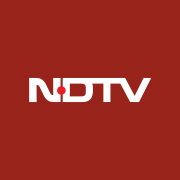FearlessRoar
T20I Star
- Joined
- Sep 11, 2023
- Runs
- 30,521
Ajit Doval To Take Charge Of National Security A Third Time
Prime Minister Narendra Modi, in his historic third term, has reposed faith again in his most trusted advisers -- Ajit Doval and PK Mishra. Mr Doval, 79, has been reappointed National Security Adviser. Mr Mishra retains his position as the Principal Secretary to the Prime Minister.
Mr Doval was appointed the NSA a decade ago when PM Modi swept to power with a massive mandate. He became the country's key interlocutor for neighbouring countries. He also handled the external intelligence agency, the Research and Analysis Wing (RAW).
The appointment was inevitable, given Mr Doval's formidable reputation as the country's premier security expert.
The first policeman to be decorated with the country's second-highest peacetime gallantry award, Kirti Chakra, Mr Doval retired as Director of the Intelligence Bureau in 2005. His field experience is staggering, making him a legend in the country's intelligence circuit.
He was part of several counter-terrorism operations in Mizoram, Punjab and Jammu and Kashmir. He infiltrated Amritsar's Golden Temple during the Operation Black Thunder of 1988, posing as a Pakistani agent and came back with vital intel on the terrorists holed up inside. He was among the officers who negotiated the release of the passengers of the hijacked plane IC-814. He also did a six-year stint in the Indian High Commission in Pakistan.
His appointment as the chief of the Strategic Policy Group -- meant for inter-ministerial coordination and integration of inputs -- in 2018 made him the most powerful bureaucrat in the country. The group includes the NITI Aayog vice chairman, the cabinet secretary, the three military chiefs, the Reserve Bank of India governor, the foreign secretary, home secretary, finance secretary and the defence secretary.
Over the last decade, Mr Doval has been the Centre's pointsperson in countering the face-off with China in Ladakh and Doklam. He is also India's special representative for resolving the boundary issue with China.
There will be plenty on the NSA's desk as he resumes charge.
Mr Doval's reappointment comes as the Centre confronts a series of terror attacks in Jammu and Kashmir following the Union Territory's first election after the scrapping of Article 370 in 2019. A record number of people voted in the recent general election in the absence of any boycott call in Kashmir Valley.

 www.ndtv.com
www.ndtv.com
Prime Minister Narendra Modi, in his historic third term, has reposed faith again in his most trusted advisers -- Ajit Doval and PK Mishra. Mr Doval, 79, has been reappointed National Security Adviser. Mr Mishra retains his position as the Principal Secretary to the Prime Minister.
Mr Doval was appointed the NSA a decade ago when PM Modi swept to power with a massive mandate. He became the country's key interlocutor for neighbouring countries. He also handled the external intelligence agency, the Research and Analysis Wing (RAW).
The appointment was inevitable, given Mr Doval's formidable reputation as the country's premier security expert.
The first policeman to be decorated with the country's second-highest peacetime gallantry award, Kirti Chakra, Mr Doval retired as Director of the Intelligence Bureau in 2005. His field experience is staggering, making him a legend in the country's intelligence circuit.
He was part of several counter-terrorism operations in Mizoram, Punjab and Jammu and Kashmir. He infiltrated Amritsar's Golden Temple during the Operation Black Thunder of 1988, posing as a Pakistani agent and came back with vital intel on the terrorists holed up inside. He was among the officers who negotiated the release of the passengers of the hijacked plane IC-814. He also did a six-year stint in the Indian High Commission in Pakistan.
His appointment as the chief of the Strategic Policy Group -- meant for inter-ministerial coordination and integration of inputs -- in 2018 made him the most powerful bureaucrat in the country. The group includes the NITI Aayog vice chairman, the cabinet secretary, the three military chiefs, the Reserve Bank of India governor, the foreign secretary, home secretary, finance secretary and the defence secretary.
Over the last decade, Mr Doval has been the Centre's pointsperson in countering the face-off with China in Ladakh and Doklam. He is also India's special representative for resolving the boundary issue with China.
There will be plenty on the NSA's desk as he resumes charge.
Mr Doval's reappointment comes as the Centre confronts a series of terror attacks in Jammu and Kashmir following the Union Territory's first election after the scrapping of Article 370 in 2019. A record number of people voted in the recent general election in the absence of any boycott call in Kashmir Valley.

Ajit Doval To Take Charge Of National Security A Third Time
Prime Minister Narendra Modi, in his historic third term, has reposed faith again his most trusted advisors -- Ajit Doval and PK Mishra.










